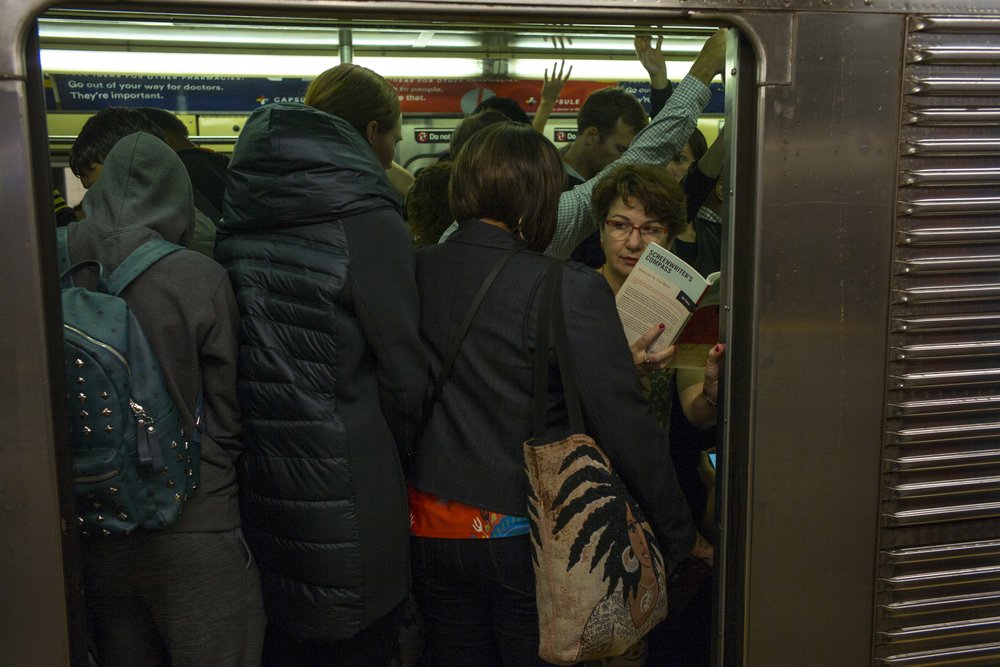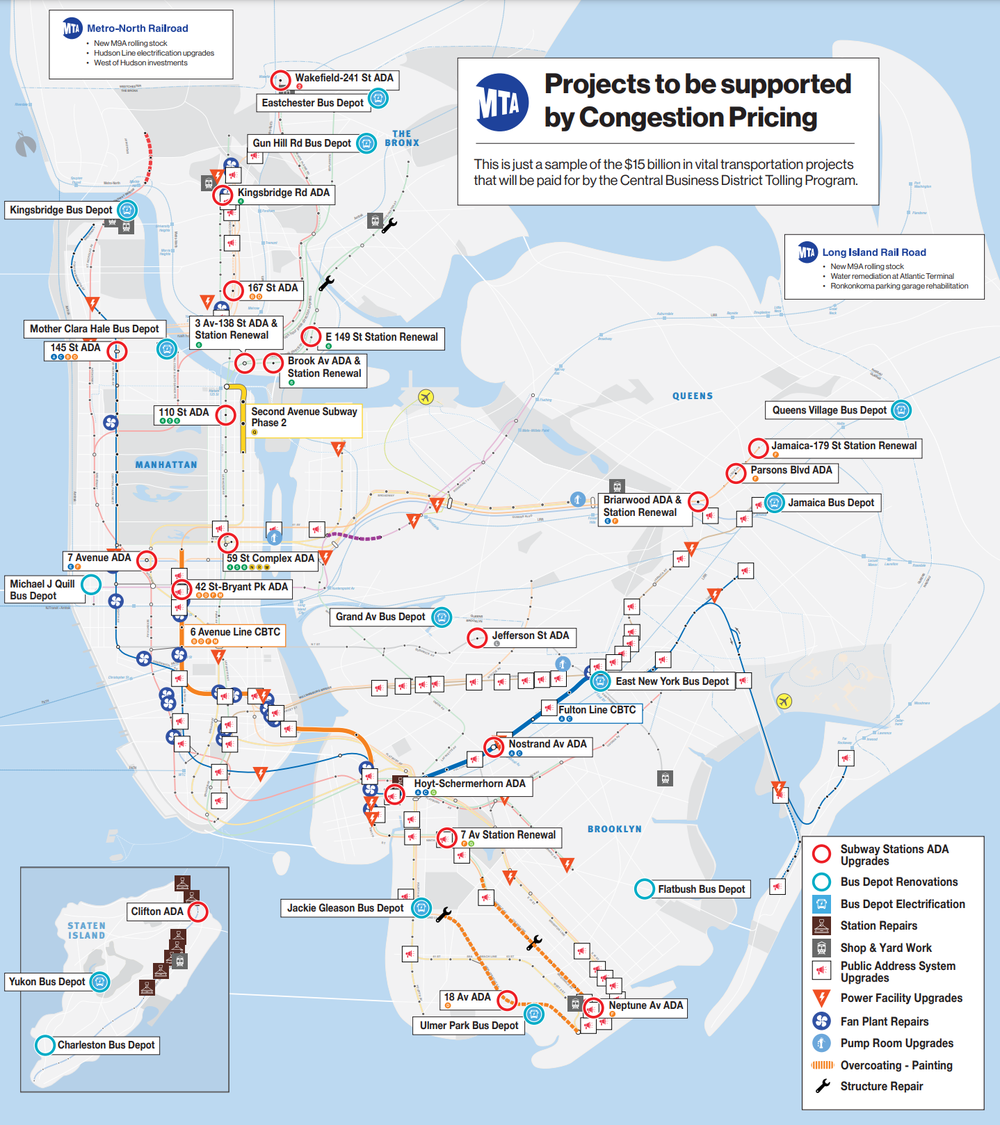Here's how NYC subway service could suffer now that congestion pricing is effectively dead
June 5, 2024, 6:18 p.m.
Earlier this year, the MTA released a list of projects dependent on congestion pricing revenue. It now looks like a kill list.

Gov. Kathy Hochul’s order to put the MTA’s congestion pricing plan on ice threatens $15 billion in funding for transit construction projects, raising the possibility New York City’s subways could fall into a state of disrepair and sending service back to the bad old days.
State lawmakers passed congestion pricing in 2019 in response to the “Summer of Hell” two years prior, when commuters faced seemingly constant service delays.
The law required the tolls to bring in $1 billion annually, which in turn would finance $15 billion of loans to pay for transit construction projects. In the ensuing years, the MTA planned an array of transit construction projects that depended on that revenue.
In February, MTA officials released a report stating that without the funding, the agency “runs the risk of falling behind on repair work necessary to update aging infrastructure and assets critical to the reliability of the system.”
The projects included renovations to make dozens of subway stations wheelchair accessible and complete the Second Avenue subway's expansion into East Harlem. The MTA froze its plans to upgrade 90-year-old signals in Brooklyn and Manhattan that direct trains on the city’s two most unreliable subway lines: the C and the F.

Jamie Torres-Springer, the MTA executive in charge of construction projects, said the uncertainty caused by lawsuits challenging congestion pricing threatened an array of plans. His remarks look particularly ominous after Hochul’s decision to indefinitely pause congestion pricing.
“Congestion pricing is foundational to the MTA Capital Program,” said Torres-Springer.
“Critical projects to maintain and improve our transit system and more than 20,000 jobs are at risk of delay and disruption.”
Here’s some of the projects the MTA said were dependent on congestion pricing revenue.
Work to make the following stations wheelchair accessible
- The Bronx: Brook Ave., Third Ave.-138th St., Kingsbridge Road, 167th St., Wakefield-241st St.
Cleaner buses with less pollution
The MTA also planned to buy more that 250 new electric buses and make “critical” HVAC repairs at three bus depots using congestion pricing funds. The agency said environmental justice communities would be the first to receive the buses, reducing fumes from diesel and hybrid buses in neighborhoods long plagued by pollution.
State of good repair
The MTA said repair work also could be delayed due to congestion pricing. “These assets, often hidden from the public eye, are essential and lack of investment could lead to disruptive outages,” the MTA warned, highlighting the following work:
- Repairs and overcoating to keep elevated lines structurally sound.
- Substation repairs and renewals to keep power running.
- Repairs to emergency exits and fan plants to keep riders safe in an emergency.
- Shop and yard repairs across the system to keep facilities running.
- Water remediation at the Long Island Rail Road Atlantic Terminal
- Rehabilitation of Ronkonkoma’s LIRR parking garage
Hochul said she would work with lawmakers to replace the congestion pricing revenue.
Sources familiar with her plans, who spoke on the condition of anonymity because they weren’t authorized to talk about private discussions, said her office floated imposing new taxes or dipping into the state’s cash reserves.
Gov. Hochul indefinitely pauses NYC congestion pricing, weeks before tolls were set to launch